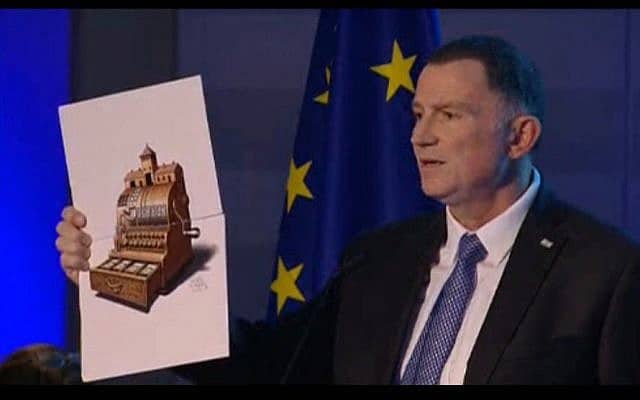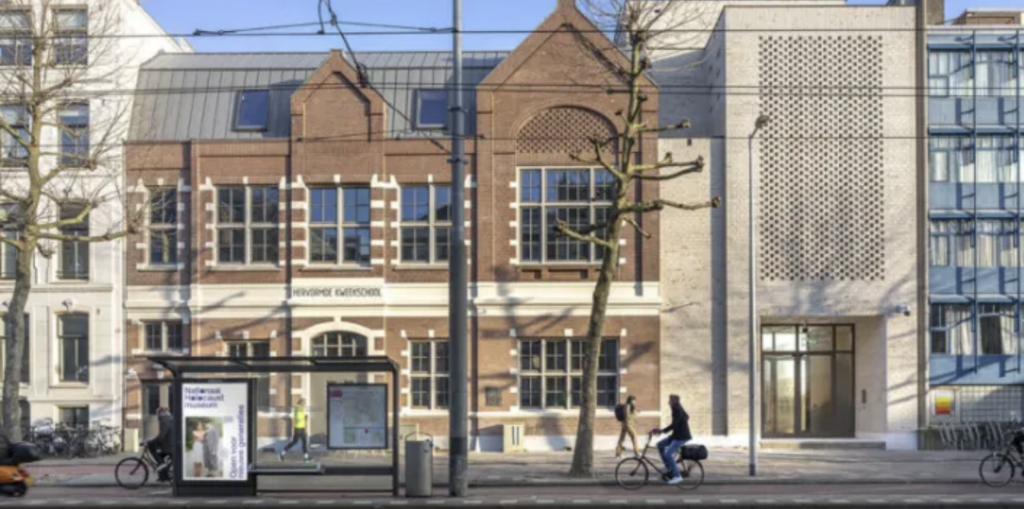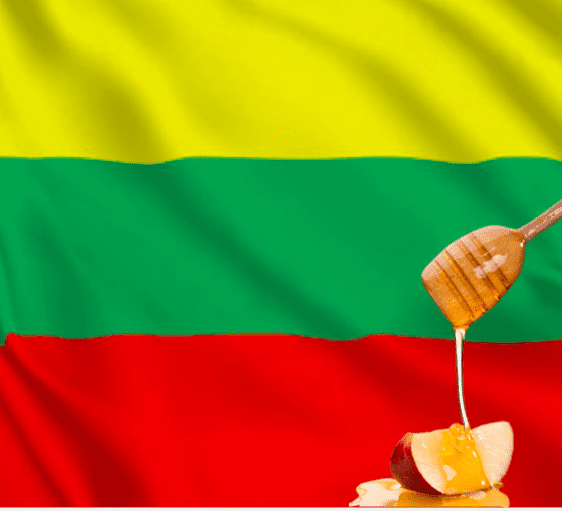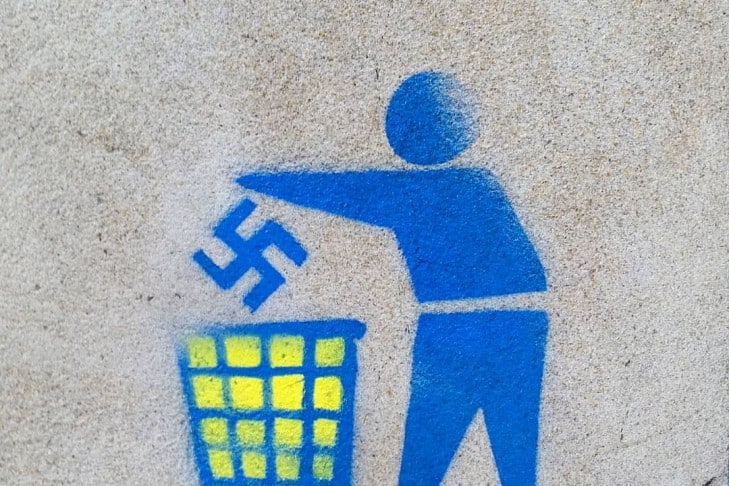Herzog’s visit to the Netherlands is part of Israel’s ongoing efforts to free the hostages held by terrorist group Hamas. In this context, he will have a series of diplomatic meetings focusing on efforts to return the hostages brutally held by Hamas in Gaza, as well as on raising awareness of the need to combat the worrying rise in antisemitism in Europe and around the world following the Hamas terrorist attack of October 7, Herzog’s office said.
Israeli President Isaac Herzog will attend on Sunday the inauguration of the National Holocaust Museum in Amsterdam.
The official ceremony will be held in the city’s famous Portuguese Synagogue, in the presence of King Willem-Alexander of the Netherlands, together with the President of Austria, Alexander van der Bellen, Dutch Prime Minister Mark Rutte, the President of the Bundesrat or German Federal Council, Manuela Schwesig, the Mayor of Amsterdam, and Jewish leaders from around the world.
Herzog’s visit if part of Israel’s ongoing efforts to free the hostages held by terrorist group Hamas. In this context, he will have a series of diplomatic meetings focusing on efforts to return the hostages brutally held by Hamas in Gaza, as well as on raising awareness of the need to combat the worrying rise in antisemitism in Europe and around the world following the Hamas terrorist attack of October 7, Herzog’s office said.
The President will be joined by the family of the late Major (Res.) Yitzhar Hoffman, who fell in battle against terrorists in January. The Hoffman family was saved in the Holocaust by Dutch citizens who were later recognized as Righteous Among the Nations.
On the same day, he will visit The Hague, where he will meet with Prime Minister Rutte President van der Bellen of Austria, and other senior officials. The President is also expected to meet with families of Israeli hostages visiting the country.

He will also meet with leaders of Jewish communities in the Netherlands, and will visit the Jewish school in Amsterdam.
‘’In each of his meetings, President Herzog will raise the ongoing and vital struggle to secure the release of all the hostages held by Hamas. He will also emphasize the important need to combat global antisemitism, and stress the centrality of Israel in the Jewish world,’’ his office said.
According to the Dutch media, pro-Palestinian activists are expected to protest the presence of President Herzog. “We value freedom of speech,” said a spokesman for the National Holocaust Museum. “We just say: keep it dignified. Keep in mind that Holocaust survivors will also be present.”
The National Holocaust Museum in Amsterdam which will be inaugurated on Sunday and will open to the public the next day, tells the story of the Nazi persecution and murder of the Jews of the Netherlands. It is the first and only museum to tell this story.
The Museum is mocated on Amsterdam’s Plantage Middellaan where hundreds of Jewish children were saved here during the war.
Visitors will learn about how it was possible for the Holocaust to happen, who the victims were, and the perpetrators – and how we can make sure that this never happens again.
Authentic elements emphasize the role played by the building during the war, like the fence where children were passed over from the adjacent kindergarten to members of the resistance.
The National Holocaust Museum is located in the old Jewish neighbourhood in the heart of Amsterdam. It is also home to the Jewish Museum and Jewish Museum junior, the Portuguese Synagogue and Hollandsche Schouwburg.
Prior to the Holocaust, 140,000 Jews were living in the Netherlands. During the 1930s, the community was active in helping Jews leave Germany, so that by the outbreak of the war, some 30,000 had found sanctuary in the Netherlands.
During the Holocaust, many of the Dutch collaborated with the Germans, while many others strove to rescue their Jewish neighbours. By the end of the war, over 100,000 Dutch Jews had been murdered. Some 10,000, including 3,500 children, had been hidden.















